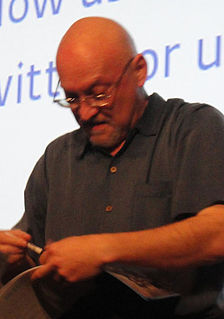A Quote by Polly Berrien Berends
Whenever the child is given the notion that he needs to be entertained, learning comes almost to a halt.
Related Quotes
Whenever I hear about a child needing something, I ask myself, 'Is it what he needs or what he wants?' It isn't always easy to distinguish between the two. A child has many real needs which can and should be satisfied. His wants are a bottomless pit. He wants, for example, to sleep with his parents. He needs to be in his own bed. At Christmas he wants every toy advertised on television. He needs only one or two.
Quintilian [educational writer in Rome around A.D. 100] thought that the earliest years of the child's life were crucial. Education should start earlier than age seven, within the family. It should not be so hard as to give the child an aversion to learning. Rather, these early lessons would take the form of play--that embryonic notion of kindergarten.
Are there bears in these mountains?" he asked. His companion nodded. "Of course. But it's a bit early in the year for them to be moving around. Why?" Halt let go a long breath. "Just a vague hope, really. There's a chance that when the Temujai here you crashing around in the trees, they might think you're a bear." Erak smiled, with his mouth only. His eyes were as cold as the snow. "You're a very amusing fellow," he told Halt. "I'd like to brain you with my ax one of these days." "If you could manage to do it quietly, I'd almost welcome it," Halt said.
I'm still learning. It's all a learning curve. Every time you sit down, with any given episode of any given show, it is a learning curve. You're learning something new about how to tell a story. But then, I've felt that way about everything I've ever done - television, features or whatever. Directing or writing, it always feels like the first day of school to me.
I think in television and film, it's not usually the child's point of view. It's the story of an adult. If there's a child in a drama or an action-adventure movie, they're someone who needs to be saved, someone who needs to be protected, or if they're killed, someone who needs to be avenged. Their character doesn't matter much.
If in the earlier part of the century, middle-class children suffered from overattentive mothers, from being "mother's only accomplishment," today's children may suffer from an underestimation of their needs. Our idea of what a child needs in each case reflects what parents need. The child's needs are thus a cultural football in an economic and marital game.


































